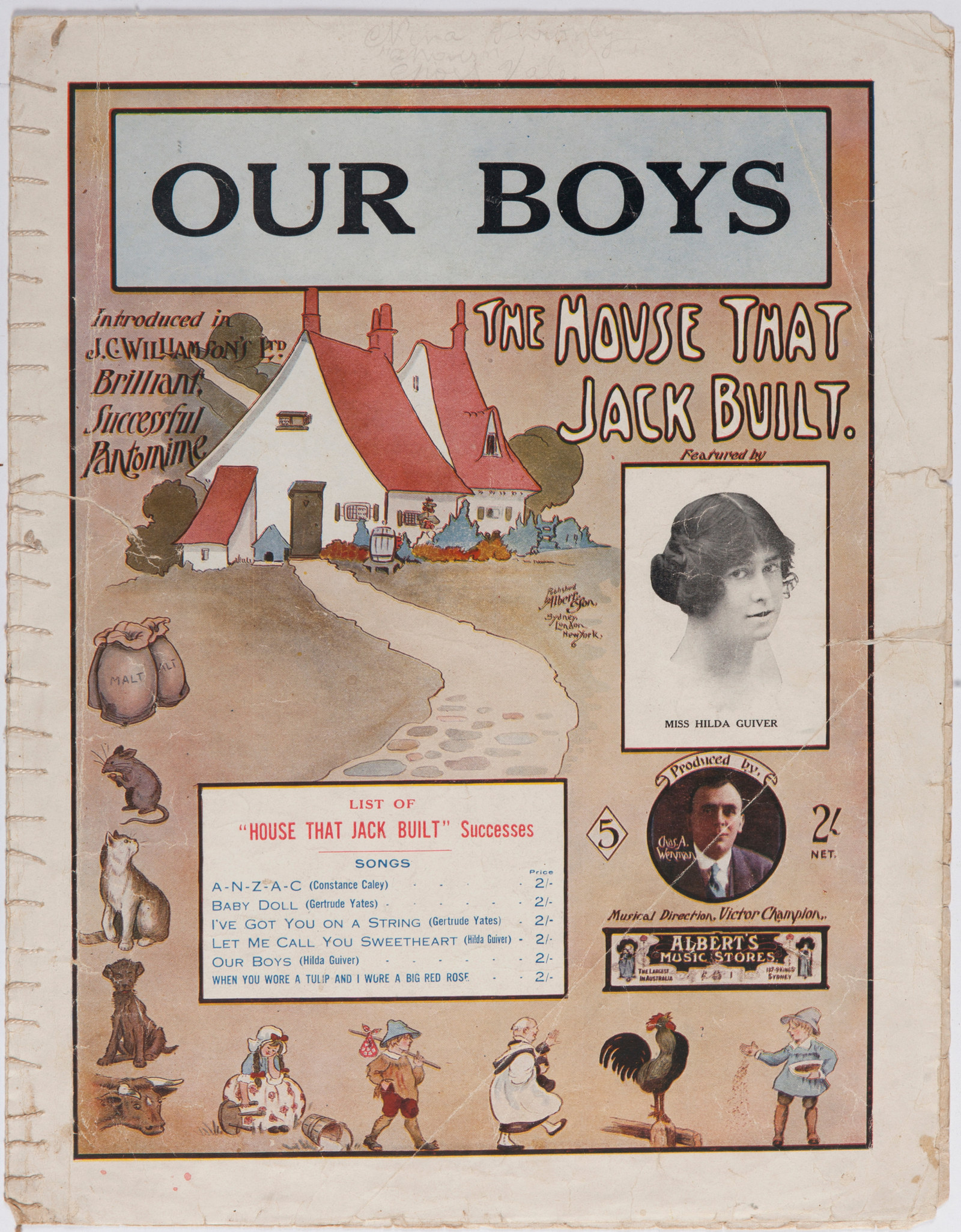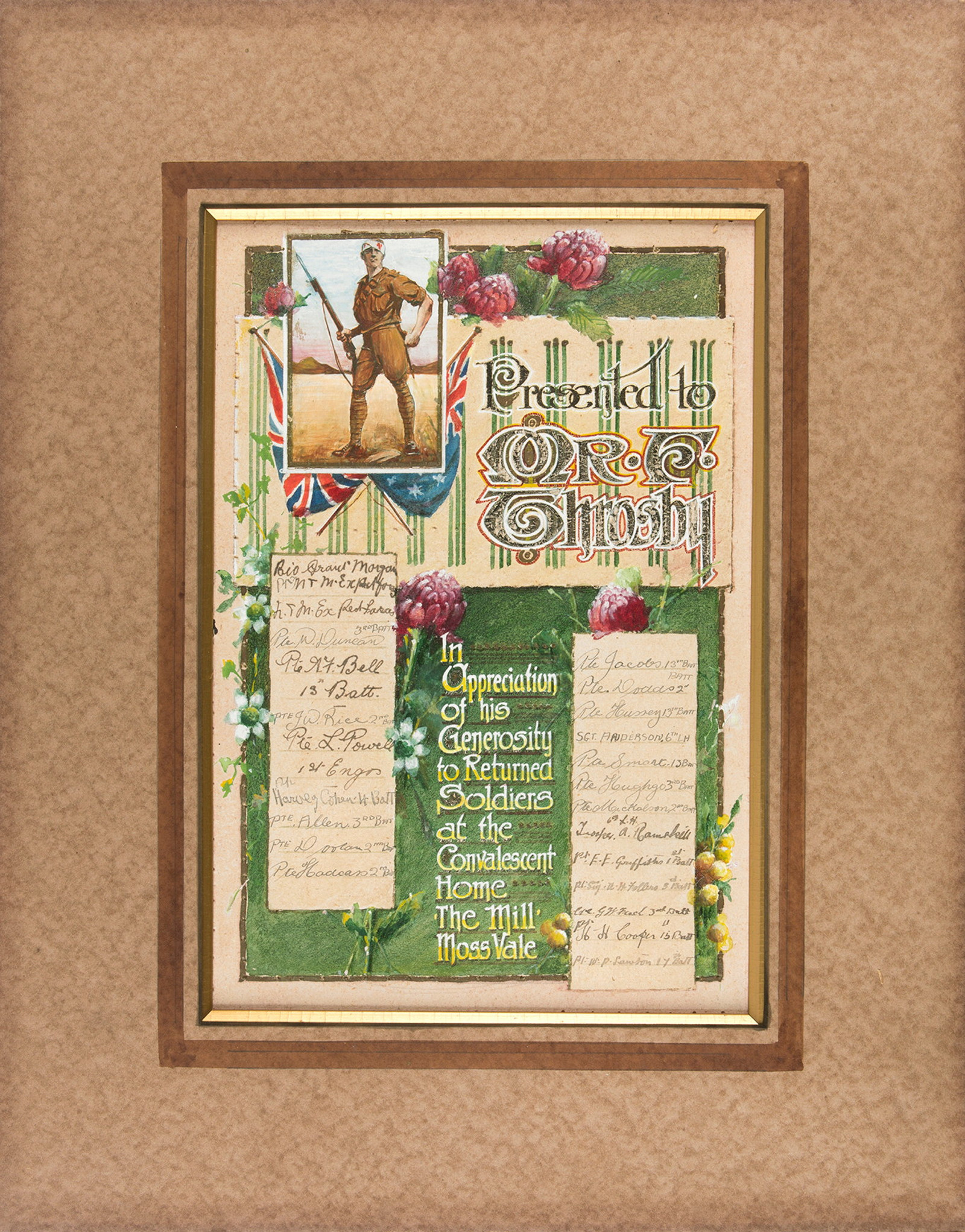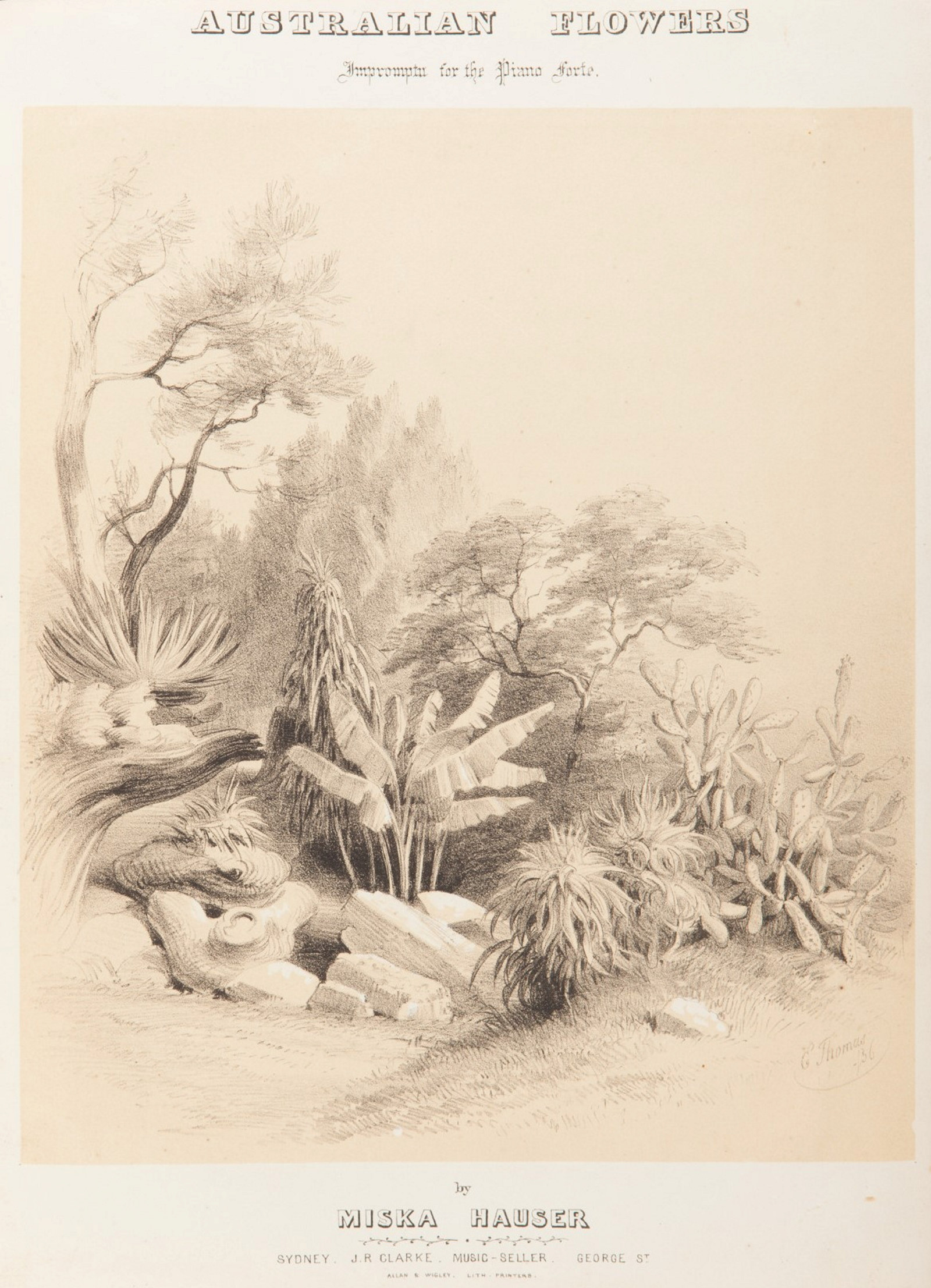The Allies in camp music roll
Rouse Hill house boasts a fine pianola, a player piano, which came into the house just a few years before the outbreak of World War I.
It was manufactured by the Aeolian Company of New York and London and was a Metrostyle pianola with a Themodist attachment, a superior model which allowed the player of the pianola, the pianolist, to control the ebb and flow of musical phrasing and to distinguish themes in the music being played. This capacity would have been particularly desirable for one of the music rolls in the collection at Rouse Hill House & Farm, a suite of patriotic, martial music titled ‘The Allies in camp’. It was written by English composer Joseph Engleman (1881–1949) and first published in London in 1915 by Hawkes & Son, music sellers and makers of band instruments. Hawkes copyrighted the mechanical rights to the music in the same year.
‘The Allies in camp’ is an example of a genre known as a ‘descriptive selection’ or ‘descriptive fantasia’, a form of musical narrative once favoured as a format for popular music relating to battles and other momentous events. In this case the narrative is indicated by the contents list on the roll: ‘Introduction (war threatening) 1. British Grenadiers 2. Russia 3. Scotland 4. Warwicks 5. France 6. Japan 7. Japanese Nautical Song 8. Belgian 9. Hornpipe 10. Wales 11. The Girl I left behind me 12. Ireland 13. Battle scene 14. Victory 15. God save the King’. Listeners would have understood these elements to represent the bands of the various Allied armies and regiments as they marched to the battle zone. Japan’s naval role in the war is also represented. The selection culminates in a grand battle scene and triumphal victory for the Allies.
The pianolist at Rouse Hill was Edwin Stephen Rouse (1849–1931), the ‘squire’ of Rouse Hill. His daughter Nina Terry also played the instrument when she visited from her nearby home at Box Hill. Before the war, Edwin and his wife, Bessie, hosted fundraising concerts for the local school in the arcade at Rouse Hill, usually supported by Nina and her husband, George. As a younger man, Edwin was a regular vocalist at community concerts, known for his rendition of ‘You should see me dance the polka’ as well as other popular and comic songs. The surviving music roll collection at Rouse Hill House & Farm reflects something of Edwin’s tastes, including several items of parlour music, some waltzes, some Irish songs, an opera selection, and two other examples of patriotic music, a ‘British Navy’ march and two-step and another march simply titled ‘To arms’.
Published on
More

WW1
Our Boys: patriotic sheet music
The song, written by a young Sydney woman named Evelyn Greig, was one of more than 500 patriotic songs published in Australia during World War I

WW1
Red Cross Convalescent Home at Moss Vale
‘The Mill’, an old Throsby family property at Moss Vale in the Southern Highlands of NSW, opened as a Red Cross convalescent home in late January 1916
![Owner bound volume of assorted songs, in the collection of Rouse Hill House & Farm, 1850-1864. [music]](https://images.slm.com.au/fotoweb/embed/2023/10/615fb53b45ca4bfb8d979b01993be8c3.jpg)
‘Home! Sweet Home!’
It may come as a surprise that the expression ‘home, sweet home’ originates from a song title

'Australian Flowers'
Given that much of the music played in Australia in the 19th century had been imported, one might ask what constituted an ‘Australian’ piece of music?
